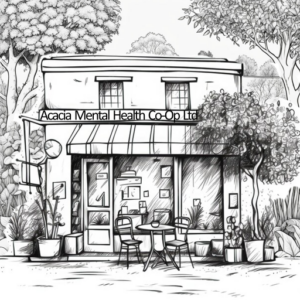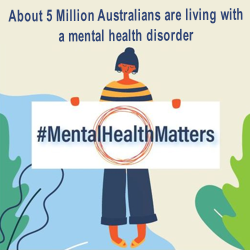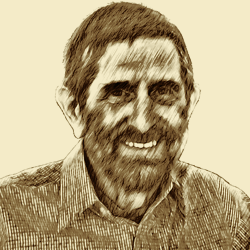Mental Health Lived Experience Workers Co-Op

An initiative is underway to establish a worker owned and operated cooperative in Australia for mental health services
While still in the formative stage, it is envisaged that suitably trained Lived Experience mental health Workers (LEW’s) will deliver a range of affordable online mental health services. LEWs are also known as Peer workers.
The co-op will be established as a private enterprise without any government funding, assistance or subsidies. The services available will be affordable even to low income earners including those on unemployment benefits.
According to the World Health Organisation (WHO) “Many mental health conditions can be effectively treated at relatively low cost, yet health systems remain significantly under-resourced and treatment gaps are wide all over the world. Mental health care is often poor in quality when delivered. People with mental health conditions often also experience stigma, discrimination and human rights violations“
The long term inability of both state and federal governments to provide quality mental health services at low cost leaves a big gap that LEW’s can potentially fill.
The services offered however will not be the normal main stream ones but rather based on what has become known as the Wellness mental health model. More…
 On The Human Rights Of “Mental” People
On The Human Rights Of “Mental” People
Australia, has become one of the worst countries in the developed world for the abuse of people suffering with mental health problems. If you are one of the 5 million or so Australians who at the moment are feeling anxious, depressed, hopeless or are struggling to cope and you turn to any of the public mental health services for help or support you are at risk of being involuntarily confined, restrained, assaulted and subjected against your will to injections of long acting addictive medication that some describe as “torture”. If you don’t co-operate you could be subjected to electro shock (ECT) treatment. You may also be deprived of all your legal rights and are likely to receive a questionable diagnosis that will subject you to public stigmatization and label you as “mad” for the rest of your life.
According to the The United Nations Human Rights Commission, the field of mental disorder has been co-opted for purposes that suit the state and the psychiatric industry, not for purposes that suit the sufferers.
It is not only the patients who are complaining. Many mental health practitioners are also fed up with the abuses they see on a daily basis.
Most are afraid to speak out. To do so is to risk not only losing their jobs but also their professional accreditation. Many are moving on to other fields creating a shortage of competent, capable mental health professionals.
But some professionals are speaking out. One of then is an experienced Australian psychiatrist who has worked in both the prison system and with indigenous communities. Here is what Dr Niall McLaren has to say about the human rights of “Mental” people. More …
Niall McLaren On Critical Psychiatry
 Niall is a retired Australian psychiatrist with a lifetime of practical clinical experience. He generally takes an adversarial position towards main stream psychiatric practices. While views expressed in his articles are obviously his own, we have read some of his books and many of his publications and generally support what we regard as his common sense approach to mental health.
Niall is a retired Australian psychiatrist with a lifetime of practical clinical experience. He generally takes an adversarial position towards main stream psychiatric practices. While views expressed in his articles are obviously his own, we have read some of his books and many of his publications and generally support what we regard as his common sense approach to mental health.
Subscribe directly to his articles here. If you are in a position to do so, please support his work with a donation that would undoubtedly be appreciated.
The Pink Panther Story
![]() Back in late 2022, a few friends with lived mental health experience got together with a view of setting up a movement to try and do something about Australia’s mental health system.
Back in late 2022, a few friends with lived mental health experience got together with a view of setting up a movement to try and do something about Australia’s mental health system.
To say that we were angry hardly describes the way most of us felt about the dysfunctional mental health services and practices that have become commonplace throughout Australia. We had also lost all confidence in both governments and organisations who claimed to want to help or represent us.
In reality, our needs and voices were simply being ignored.
Many of us have been subjected to considerable violence by the Australian mental health system.
We have also noticed how passive pleas for change to government over many years has had no effect. It is generally conceded that mental health services in Australia have gotten worse.
Activism can take many forms. People like Mahatma Gandhi in India and Martin Luther King Jr in the USA were staunch supporters of non violent protest while organisations like the Black Panther Party, dealing with the same issues as Luther King took up arms against racial inequality and police brutality.
All of these people can be looked to in terms of their spirit, passion and commitment but any form of violent protest was not an option for us. It only adds to a person’s trauma and makes mental health problems worse. This is something the Australian government and many mental health practitioners seem completely unaware of.
We needed a positive way forward. We heard about something called Soteria houses that exist in various countries. They claim to offer a supportive, non-restrictive environment where individuals are treated with kindness and respect and empowered to work through their crises at their own pace. This approach seemed almost too good to be true. It has since become not only the basis for the reforms we would like to see take place in Australia but also our credo for what future mental health policy should look like.
At the time, one of our musically inclined members had been learning Henry Mancini’s well known composition “The Pink Panther Theme” for an upcoming performance. From these unrelated entities, the idea for a name and even the somewhat spirited ethos somehow, spontaneously arose.
We changed the word “Black” in The Black Panther Movement to “Pink” and The Pink Panther Movement was born.
We are a fiercely independent peer owned, operated and self funded organisation. We operate on a shoestring budget and accomplish more than many of the heavily government subsidised organisations do.
Projects
Most of what we do involves small groups of people working together on various projects. Here are some of the current projects.
Mental Health Lived Experience Workers Co-Op
This is our latest project. It doesn’t require a lot of funding or government support. Just a few committed enthusiastic people. See the article at the top of this page
Building a Soteria Community In Australia
Please Note: This project has been mothballed for the time being after a long, hard but fruitless battle to get the Federal government interested.
Soteria community houses have been around for over 50 years and have proven themselves as a gentler, kinder and more effective solution to serious (psychotic) mental health problems than institutional psychiatric wards and hospitals. These days, Soteria type houses are mostly found in Europe but why not in Australia?
Soteria houses are a part of what is becoming known around the world as the Recovery Model of mental health. It challenges the traditional mainstream psychiatric approach which claims serious mental health to be the result of an incurable lifelong brain disease. The recovery movement involves a number of different live in residential programs including Diabasis, I-Ward and Soteria as well as family and social support networks such as Open Dialogue and the Hearing Voices network. They all take a similar approach and overall have been successful in helping people.
Our article “It’s Time For Soteria:An Australian perspective” was published on Mad In America- Click Here To Read It. It has been distributed to a number of senior Federal politicians with whom we are currently discussing the establishment of Soteria Houses throughout Australia on a trial basis.
The Soteria Message is a plain and simple one
Mental Health is a complex phenomena which affects or impacts the whole of our society.
There is no simple or one size fits all solution but things can be dramatically improved.
You don’t have to be a psychiatrist or psychologist to realise that providing an already badly traumatised person with a safe, supportive, kind and understanding environment has to have a better long term outcome than physical restraint, violence, and involuntary drugging.
Promoting Mental Health Reform
This is a place to build relationships with like minded people who want to try and collectively do something about the sometimes horrific mental health practices taking place in Australia. As individuals acting alone we typically find ourselves isolated and without a public voice. We are also very vulnerable to those who are all too ready to take advantage of our situation.
Dealing with mental health problems is difficult enough. We don’t need the additional burden of individuals or organisations who think they have the right to treat us like children or worse. We can also do without poor quality, unaffordable or unavailable services as well as laws that deprive us of our human rights, justify institutionalized abuse and believe it or not even condone involuntary archaic practices that are commonly considered dangerous, ineffective and regarded by some as torture.
Telling Our Stories
We welcome anyone who has expertise or interest in mainstream or social media as well as visual artist, writers, musical composers or anyone interested film or animation, Our first Mad Music Video called Sanity and Madness is currently in production and is scheduled for public release soon. This is an experiment to try and address the false information about mental health using music, lyrics and graphic images. Highly misleading information has been heavily promoted around the world by vested interests, particularly to young people. This information often results in an overwhelming sense of hopelessness and despair which then often inhibits rather than promotes recovery.
Please note that like every job in our organisation, at this stage is voluntary.

What You Can do –
- Join this movement. Every member counts. We need numbers to make our concerns and opinions count.
- Volunteer to become a “committee member” and become involved in the day to day discussions and our efforts in lobbying members of parliament and others who drive mental health policy in Australia.
- Become aware of what is going on and talk to anyone who will listen.
- Have your say online by responding to articles or write an article yourself.
- Help where you can. This is a voluntary organisation where we try and help each other to the best of our abilities. There are lots of jobs, both large and small that need doing to keep a movement like this going and getting results.

We are not anti-psychiatry, anti-psychology, anti-medication, anti-government nor are we mental illness deniers.
We are opposed to involuntary treatment, involuntary confinement, cruel, inhuman or degrading treatment including punishment or torture in accordance with the World Health Organisation (WHO) Comprehensive Mental Health Action Plan 2013-2030 and the United Nations Convention on the Rights of Persons with Disabilities (CRPD).
We are also opposed to treating human beings who are unfortunate enough to succumb to mental health problems (it can happen to anybody) as sub humans who deserve contempt and abuse, rather than compassionate help and support.
We are aware that many people working in mental health services share these concerns but often feel powerless to do much about the current situation.
We support the international Mad Pride movement including Mad In America, website and magazine. Some of the best and kindest people in the world refer to themselves as mad. Turn your madness into an asset and at the same time, help put a stop to those who think of us or try and treat us as broken or inferior.
You’ve got to be crazy. It’s too late to be sane. Too late. You’ve got to go full-tilt bozo. ‘Cause you’re only given a little spark of madness, and if you lose that, you’re nothing. Note, from me to you… Don’t ever lose that cause it keeps you alive. – Robin Williams
